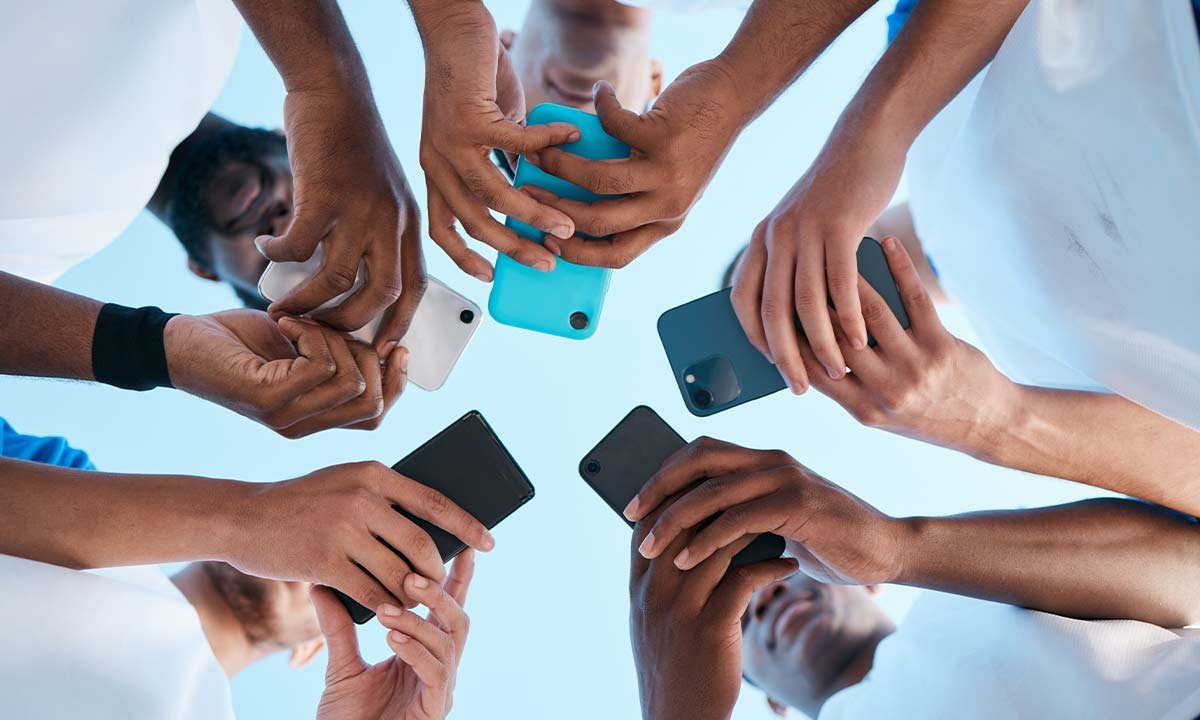The 10 Harmful Effects of Mobile Phones on Students and How to Mitigate Them

Mobile phones have become an integral part of our daily lives, especially for students. While these devices offer convenience and connectivity, they also pose significant risks to students' well-being. In this article, we will explore the 10 harmful effects of mobile phones on students and provide practical solutions to mitigate these negative impacts. From academic distractions to mental health issues, mobile phones can have far-reaching consequences on students' lives. By understanding these risks, parents, educators, and students themselves can take proactive steps to promote healthier phone usage habits.
Why Are Mobile Phones Harmful for Students?
Mobile phones have revolutionized communication, entertainment, and education. However, their convenience often comes with hidden dangers, particularly for students. One of the most prominent 10 harmful effects of mobile phones on students is the constant distraction they create. Social media, gaming, and other apps make it difficult for students to focus on their studies. In addition, excessive phone use can lead to sleep disturbances, increased stress levels, and physical health problems. For students struggling with anxiety or depression due to these issues, professional help from a depression treatment centre in Gurgaon can be beneficial.
As students become more dependent on their mobile devices, it is crucial to address these 10 harmful effects of mobile phones on students and find ways to promote a healthier relationship with technology. Mobile phones, if used excessively, can hinder students' academic performance, social skills, and mental well-being. Let’s delve deeper into the specific effects and their consequences.
The 10 Harmful Effects of Mobile Phones on Students
1. Academic Distraction
One of the most prominent 10 harmful effects of mobile phones on students is the constant distraction they provide. Whether it's checking social media, texting friends, or playing games, mobile phones can easily pull students away from their studies. Research has shown that students who use mobile phones during study time are less likely to retain information, leading to lower academic performance. This decline in performance may require intervention at a best rehabilitation centre in India to help students regain focus.
Mobile phones are designed to keep users engaged, which makes it difficult for students to resist the urge to check notifications. This disrupts their ability to concentrate and study effectively. As a result, students may spend less time focusing on assignments, which negatively affects their academic achievements.
2. Sleep Disruption
The blue light emitted by mobile phones has been shown to interfere with the production of melatonin, a hormone that regulates sleep. As a result, students who use their phones late at night often experience poor sleep quality. Sleep deprivation, in turn, impacts cognitive function, mood, and overall health. The 10 harmful effects of mobile phones on students include not just the immediate effects of poor sleep but also the long-term consequences, such as reduced memory retention and increased stress. For students with ongoing sleep issues, advice on difference between stress and depression can be enlightening.
Students who spend hours on their phones before bed often find it difficult to fall asleep, and this disruption in sleep patterns can lead to daytime fatigue and irritability. It's essential for students to establish healthy phone usage habits, especially before bedtime, to avoid the negative effects of mobile phones on their sleep. For severe cases, treatment at a drug addiction treatment center in Gurgaon might be necessary.
3. Addiction and Dependence
Mobile phones are designed to be highly engaging, with features like social media platforms and gaming apps that keep users coming back for more. This can lead to addiction, particularly among students who spend excessive amounts of time on their phones. The 10 harmful effects of mobile phones on students include dependence on the constant stimulation that phones provide. This addiction can interfere with daily life, making it difficult for students to focus on important tasks, such as schoolwork, family activities, and sleep.
Signs of mobile phone addiction include constantly checking for notifications, feeling anxious when unable to access the phone, and neglecting real-world activities in favor of phone use. It is crucial to address this issue early to prevent long-term negative effects on students’ mental and physical health.
4. Mental Health Issues
The rise of social media platforms has exacerbated the 10 harmful effects of mobile phones on students by creating an environment ripe for comparison and self-doubt. Students are constantly exposed to idealized versions of others’ lives, which can lead to feelings of inadequacy, anxiety, and depression. Studies have shown that students who spend more time on social media platforms are more likely to experience negative emotional effects.
Cyberbullying is another significant mental health risk associated with mobile phone use. Students who are victims of cyberbullying often feel isolated, helpless, and may struggle with mental health issues such as depression and anxiety. Addressing these risks requires open conversations about responsible phone use and the importance of maintaining a healthy online presence.
5. Cyberbullying and Online Harassment
Mobile phones provide students with instant access to social media and messaging platforms, which unfortunately makes them vulnerable to cyberbullying and online harassment. The anonymity of the internet can embolden bullies, making it more difficult for students to escape or report the abuse. The 10 harmful effects of mobile phones on students include not just the emotional damage caused by bullying but also the long-term psychological effects, such as lowered self-esteem and trust issues.
Cyberbullying can have severe consequences, leading to feelings of isolation, depression, and even suicidal thoughts. It's essential for parents and educators to monitor students' online activity and ensure that they are using their phones safely and responsibly.
6. Reduced Social Skills
Excessive phone use can hinder the development of essential social skills. Students who spend too much time on their phones may struggle with face-to-face communication, which is crucial for building relationships and developing emotional intelligence. The 10 harmful effects of mobile phones on students include the potential for increased social anxiety, as students may find it difficult to engage in real-life conversations and navigate social situations without relying on digital communication.
The overuse of mobile phones can also lead to social isolation, as students may prefer to interact with others through screens rather than in person. Encouraging students to engage in real-world activities, such as sports or group projects, can help improve their social skills and reduce their reliance on digital communication.
7. Physical Health Problems
Extended use of mobile phones can lead to a variety of physical health issues. The most common health problems associated with mobile phone use include eye strain, neck pain, and back problems due to poor posture. The 10 harmful effects of mobile phones on students also include an increased risk of obesity, as students who spend long hours on their phones may be less inclined to engage in physical activities.
Moreover, prolonged exposure to mobile phone screens can lead to digital eye strain, a condition characterized by dry eyes, headaches, and blurred vision. Encouraging students to take regular breaks from their phones and practice good posture can help reduce these physical health problems. For more on maintaining well-being, check out best foods for mental health.
8. Exposure to Inappropriate Content
Without proper supervision, students can be exposed to inappropriate content, such as violence, explicit images, and harmful ideologies. The 10 harmful effects of mobile phones on students include the potential for students to come across content that can negatively impact their emotional development and worldview. Students may also encounter misinformation and fake news, which can shape their beliefs in unhealthy ways.
Parents and educators must actively monitor the content students are exposed to on their phones and encourage responsible online behavior. Setting parental controls and using content filtering apps can help limit exposure to harmful material.
9. Compromised Academic Integrity
Mobile phones make it easier for students to cheat during exams or assignments. With instant access to search engines, notes, and even cheating apps, academic integrity is at risk. The 10 harmful effects of mobile phones on students include the temptation to rely on shortcuts, which undermines the learning process and fosters dishonest behavior.
Cheating can lead to long-term consequences, including academic suspension, loss of trust, and hindered personal development. Encouraging students to embrace honest academic practices and use their phones for educational purposes only can help mitigate this risk.
10. Increased Risk of Accidents
Mobile phones contribute to a higher risk of accidents, particularly for students who use them while walking or driving. The 10 harmful effects of mobile phones on students include distractions that impair their ability to focus on their surroundings, increasing the likelihood of accidents. Texting while walking, for example, can lead to trips, falls, and collisions with other people or vehicles.
Students must be educated on the importance of staying aware of their environment and using their phones responsibly to reduce the risk of accidents.
How Parents and Educators Can Help
To address the 10 harmful effects of mobile phones on students, parents and educators can take the following steps:
- Set digital boundaries: Establish rules for phone use, such as no phones during study time or meals.
- Encourage physical activity: Promote sports, outdoor activities, and hobbies that don’t involve screen time.
- Monitor phone usage: Keep track of the apps and websites students are accessing to ensure they are using their phones responsibly.
- Promote healthy sleep habits: Encourage students to turn off their phones at least an hour before bedtime to improve sleep quality.
When to Seek Professional Help
If a student’s mobile phone use is causing significant distress, it may be time to seek professional help. Signs of trouble include:
- Decline in academic performance
- Increased anxiety or depression
- Withdrawal from social activities or family
- Overdependence on mobile phones
Professional counselors and behavioral health specialists can provide support for students struggling with phone addiction or related mental health issues.
Final Thoughts
While mobile phones are an essential tool for students, their overuse can lead to numerous negative consequences. By understanding the 10 harmful effects of mobile phones on students, we can take steps to mitigate these risks and promote healthier phone usage habits. Encouraging students to balance their screen time with real-world activities is crucial for their overall well-being and academic success.
Frequently Asked Questions
Mobile phones can distract students during study time, leading to lower focus and academic performance. Constant notifications and social media usage interfere with concentration.
Excessive phone use can lead to anxiety, depression, and low self-esteem, especially due to social media comparisons and cyberbullying.
Set screen time limits, encourage outdoor activities, and monitor app usage. Having \"phone-free\" times, like during meals or before bed, can also help.
Students can experience eye strain, neck pain, and poor posture from prolonged phone use. It can also lead to digital eye strain and sleep disturbances.
Use parental control apps, set content filters, and have open discussions about safe internet use and the potential dangers of mobile phone usage.
Schools can implement phone-free zones or times, educate students on responsible usage, and promote activities that don’t involve screens.
Parents can use tracking apps to monitor screen time, check social media activity, and set guidelines for phone use, such as no phones during homework time.
Yes, counselors and behavioral therapists can help students manage phone addiction through counseling, therapy, and creating healthier phone habits.






